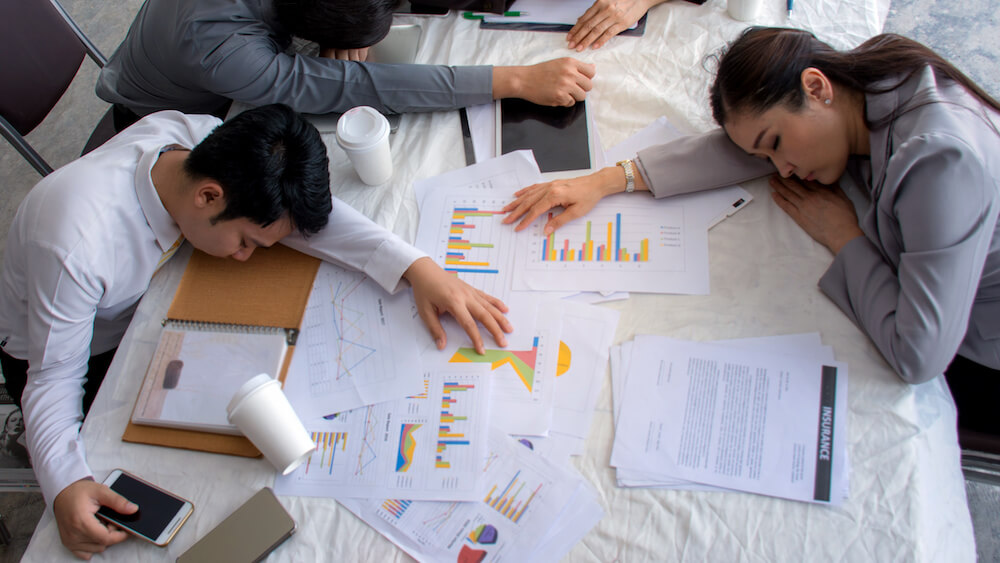
‘Meeting Recovery Syndrome’ can be added to the list of workplace issues that prevent us from doing our best work. (Photo Credit Adobe Stock)

Michelle Russell
Everyday distractions — from email overload to buzzing digital channels competing for our attention to open-space offices — derail us from doing “deep work.” That’s what computer scientist Cal Newport calls cognitively demanding work requiring our full concentration — like mastering complicated information and using our ingenuity to solve challenges. The ability to tame distractions that take us away from that work is what Indistractable author Nir Eyal — the productivity expert I quote from extensively in this issue’s cover and CMP Series story — says is the No. 1 job skill of the future.
One everyday work distraction that we didn’t cover is a close cousin to our industry: office meetings. A recent BBC article said that workers can blame their “worthless workdays” on too many unnecessary and unproductive meetings. Organizational psychologists have a term for the toll those meetings take on our psyche: “meeting recovery syndrome,” or MRS.
Employees spend an average of six hours a week in meetings, and for the average manager, it’s an astounding 23 hours a week. When you add MRS — “time spent cooling off and regaining focus after a useless meeting,” according to the BBC article — most people waste a full day or more a week on unproductive meetings, and for managers, that wasted time equates to a part-time job.
In order to recover from those kinds of meetings, researchers say, we need to replenish our “finite mental and physical resources.” We underestimate the time it takes to regain focus, which also compounds the problem we have with other workplace distractions.
“As humans, when we transition from one task to another on the job … it takes an effortful cognitive switch. We must unstick ourselves from the previous task and expend significant energy to move on,” Joseph A. Allen, associate professor in industrial and organizational psychology at the University of Nebraska Omaha, told the BBC.
Allen speculates that the time it takes to switch tasks in a “non-MRS condition” is 10–15 minutes. With MRS, it may take as long as 45 minutes. Allen, along with other University of Nebraska Omaha colleagues, published a study of best practices for work meetings. As event organizers, this stuff is second nature to you — from preparing an agenda that is circulated in advance, to actively encouraging participation, to sending meeting minutes and action items out shortly afterwards.
Something else can change participants’ meeting experience, as the study’s authors write (as only academics can): “Humor and laughter patterns in meeting interactions seem to stimulate positive meeting behavior, such as praising other people, encouraging people to participate, and proposing solutions to problems.” Cheers to that.
Michelle Russell is the editor in chief of Convene.
